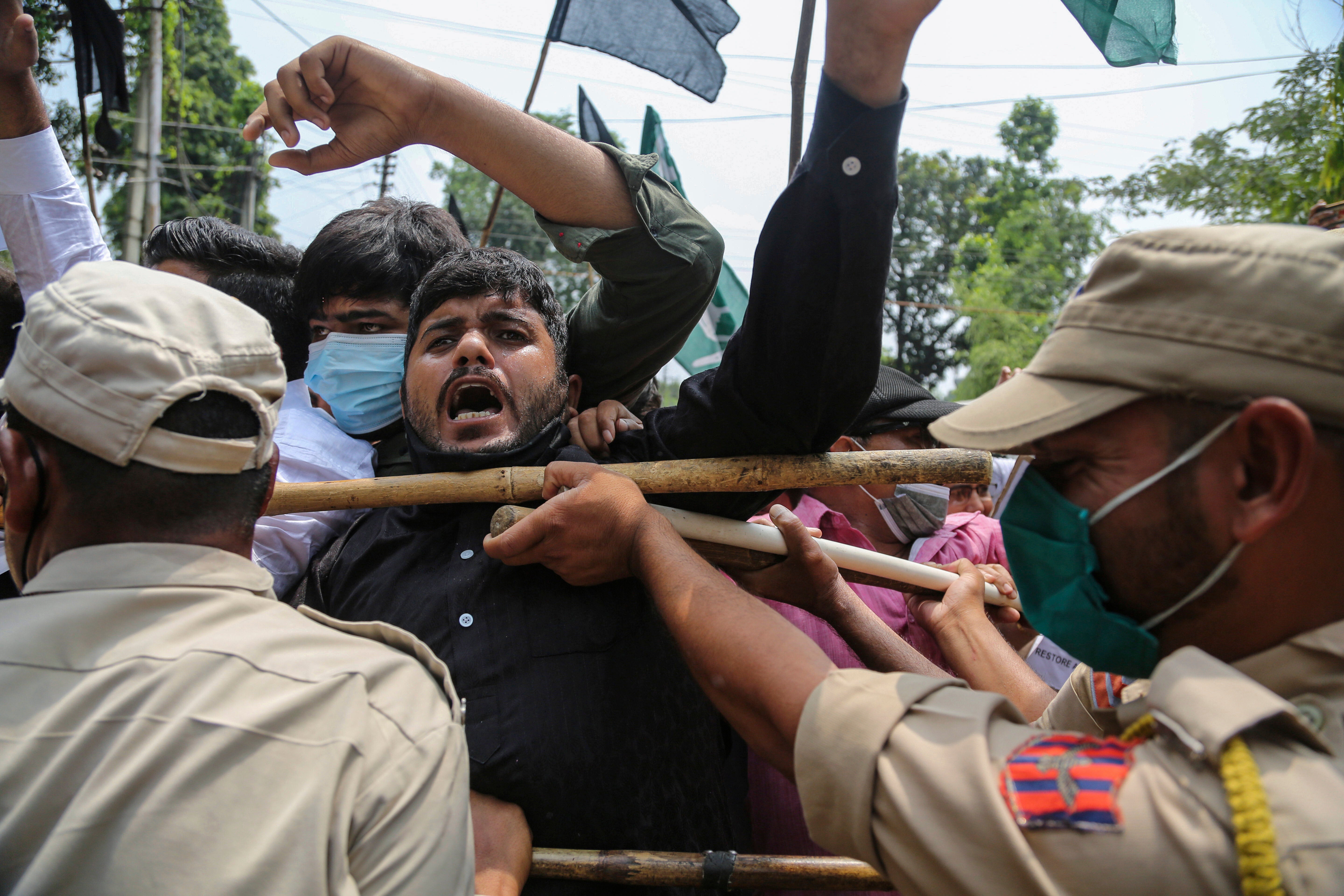Troops patrol Kashmir on anniversary of statehood revocation
Government forces are patrolling much of Indian-controlled Kashmir and ordered shops and businesses to remain open to foil a planned strike by separatists on the second anniversary of India’s revocation of the disputed region’s semi-autonomy

Your support helps us to tell the story
From reproductive rights to climate change to Big Tech, The Independent is on the ground when the story is developing. Whether it's investigating the financials of Elon Musk's pro-Trump PAC or producing our latest documentary, 'The A Word', which shines a light on the American women fighting for reproductive rights, we know how important it is to parse out the facts from the messaging.
At such a critical moment in US history, we need reporters on the ground. Your donation allows us to keep sending journalists to speak to both sides of the story.
The Independent is trusted by Americans across the entire political spectrum. And unlike many other quality news outlets, we choose not to lock Americans out of our reporting and analysis with paywalls. We believe quality journalism should be available to everyone, paid for by those who can afford it.
Your support makes all the difference.Government forces patrolled much of Indian-controlled Kashmir and ordered shops and businesses to remain open Thursday to foil a planned strike by separatists on the second anniversary of India’s revocation of the disputed region’s semi-autonomy.
Government forces placed steel barricades and razor wire across many roads, bridges and intersections and set up checkpoints in anticipation of anti-India protests. Some shops and businesses remained shut in Srinagar the region’s main city, while police and soldiers checked vehicles and frisked pedestrians.
In Srinagar's main business center, men escorted by police used iron rods and bricks to break locks on some shuttered shops.
On Aug. 5, 2019, the Indian government led by Hindu nationalist Prime Minister Narendra Modi stripped Jammu and Kashmir of its statehood, scrapped its separate constitution and revoked inherited protections of land and jobs, allowing more outsiders to settle in the Muslim-majority region.
The former state was split into two federal territories — Ladakh and Jammu-Kashmir — deepening anti-India sentiment in the region. Indian authorities also enforced a monthslong information blackout and security clampdown. Thousands of young people and political leaders — both anti- and pro-India — were arrested. Scores remain incarcerated.
As some of the restrictions were eased, India enforced another harsh lockdown to combat the coronavirus, deepening the economic crisis in the region.
Separatist groups who challenge India’s sovereignty in Kashmir called for Thursday’s strike to mark what they call “black day.”
The status of Kashmir has been a key point of dispute between Pakistan and India since the two countries split after the end of British colonial rule. They each control part of Kashmir and have fought two wars over the region.
Since 1989, rebels have fought India's rule in the portion of Kashmir it controls. Most Muslim Kashmiris support the rebel goal of uniting the territory, either under Pakistani rule or as an independent country.
Tens of thousands of civilians, rebels and government forces have been killed in the conflict.